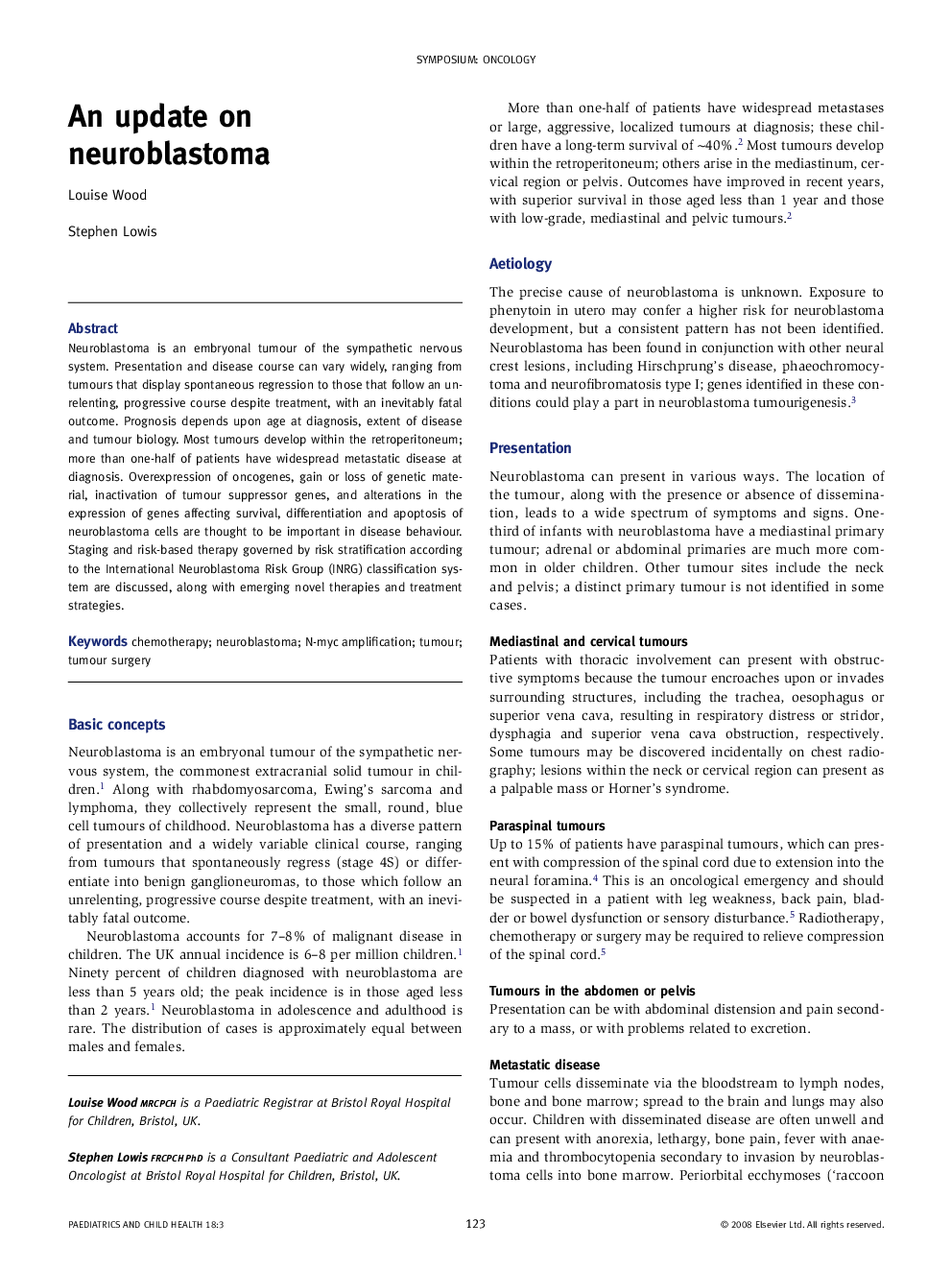| Article ID | Journal | Published Year | Pages | File Type |
|---|---|---|---|---|
| 4172984 | Paediatrics and Child Health | 2008 | 6 Pages |
Neuroblastoma is an embryonal tumour of the sympathetic nervous system. Presentation and disease course can vary widely, ranging from tumours that display spontaneous regression to those that follow an unrelenting, progressive course despite treatment, with an inevitably fatal outcome. Prognosis depends upon age at diagnosis, extent of disease and tumour biology. Most tumours develop within the retroperitoneum; more than one-half of patients have widespread metastatic disease at diagnosis. Overexpression of oncogenes, gain or loss of genetic material, inactivation of tumour suppressor genes, and alterations in the expression of genes affecting survival, differentiation and apoptosis of neuroblastoma cells are thought to be important in disease behaviour. Staging and risk-based therapy governed by risk stratification according to the International Neuroblastoma Risk Group (INRG) classification system are discussed, along with emerging novel therapies and treatment strategies.
